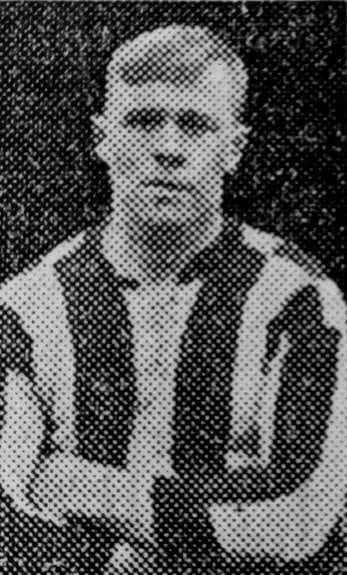Mexborough & Swinton Times – Friday 10 June 1932
Football In Denmark
Denaby Player’s Impressions
A Fine Country

Denmark appears to be a land flowing with milk and honey, according to the impressions gained a recent visit by Teddy Hancock, the Liverpool footballer, son of Mr. Jim Hancock, Mile End Villas, Conisborough, formerly secretary-manager of Denaby United F.C.
Hancock had a fortnight’sstay in Denmark recently, his club playing four matches against Danish teams. They won all the games, but had a difficult task in beating Copenhagen, a side equal to any of our First Division trains.
“There seems to be no poverty in Denmark,” Hancock told a “Times” reporter this week. “Everyone seems to have plenty of money and appears to be out for a good time. They get it, too. Their wages are very good, but they have to work long hours for them. And the cost of living is high. Everything is dear except bacon, cheese, and butter. In hotels or restaurants. 15 per cent. is added to the bills as tips for the waitresses, who receive no other payment. According to the information I received there, there are only about 1000 persons unemployed throughout the whole country.”
Reverting to football, Hancock said the Danes were taking a keen interest in the game, which they played with spirit but little science. The grounds were hard, owing to excessive heat. The game was “nationalised,” and no wages were paid the players, but grants made towards expenses. All games were played on Sundays, the one day of the week the people had not to work. On that day, too, every other kind of sport was catered for, especially gymnastics, displays of which were very fine. Horse-racing was held every Sunday evening at Copenhagen.
“The people are very nice and very hospitable, and they gave us a good time. The women are very fine, all blondes, big and strong. They seem a finer race than the men. And they pride themselves on their cooking. Every meal is a banquet. Yet they never tackle anything until it is high and although we had plenty of food placed before us we could hardly tackle it, and were glad to get back to England and a square meal.”
Hancock then told of a visit to a large bacon factory in Copenhagen, where 1000 pigs are killed and cured every day. “They place the pigs in pens, and each is hooked alive on to a pulley and chain. They are then slung along to a man who slits their throats with a knife, and on they go into 4 large furnace and thence to the other departments. It is rather ghastly to watch.”
He also recounted a visit to Denmark’s only brewery, a Government concern, which sends out a million bottles of beer and 600,000 bottles of mineral waters per day. “But the beer is weak, and although there are no restrictions regarding drinking hours I never saw a single person drunk.”
Hancock was surprised at the number of motor-ears. Everyone seemed to own one. “And the travelling facilities warrant it. They are terrible, especially trains.” And he was surprised at the number of bicycles —20.000 in Copenhagen alone.
The reason, however, is that the country is very flat. Another queer feature to him was that not a single house is to be found in Copenhagen, only flats.
The country is beautiful: the people charming, but there are many drawbacks to Denmark, and England is still “the finest country in the world” to Hancock.
